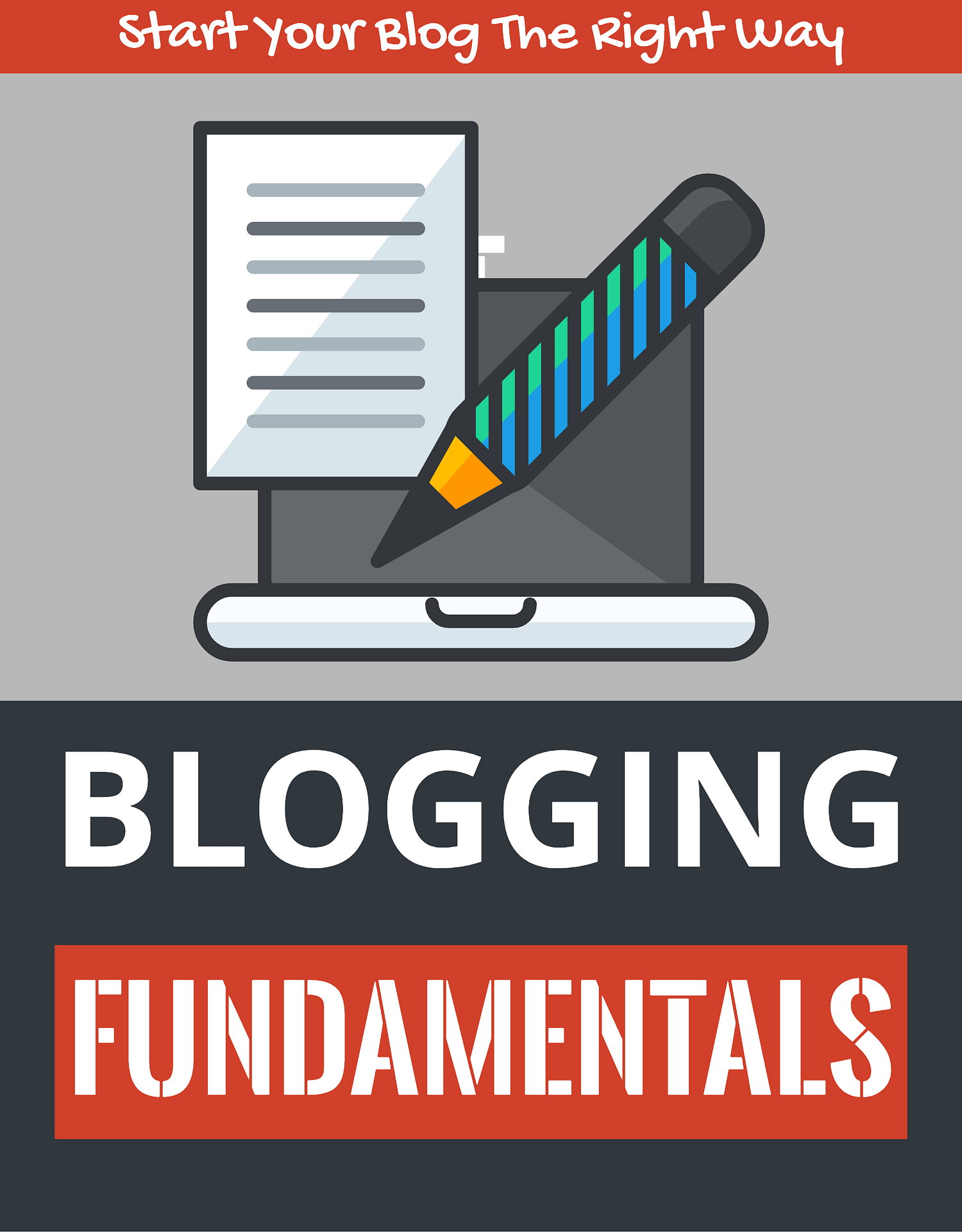Email Marketing
Monetize Your Blog Using These 5 Proven Strategies

If there’s one mantra that every beginner marketer needs to repeat every single day, it’s this – “I only make money when I sell!”
It’s a simple truth, and yet, it’s often forgotten by marketers who miss the point as they bog themselves down with a myriad of inane details which are part and parcel of running an online business – but are not the MAIN THING.
They check off all the required boxes except the one which puts money in their pockets – selling.
They fail to keep ‘selling’ at the forefront of their minds and end up failing miserably at it. Now what they have are blogs with lots of content, but which are about as useful as a one-legged man at an ass-kicking contest.
Why are blogs an effective way to get started online anyway? Well, they are easy to set up and cheap. All you need is a domain name (use Namecheap) and hosting (use A2 or Siteground)
The secret to avoiding this problem will be to monetize your blog effectively. You have to sell, sell and sell some more to be profitable. How else will you make money?
Even if you’re displaying sponsored content on your blog, you’re still selling space on it for ads to appear.
Now, there are many monetization methods with varying degrees of efficacy. But ultimately, someone has to buy something (or click on an ad) for you to actually see money landing in your bank account.
And that’s what this article is all about. You’re going to learn 5 ways to transform your blog into a money-making machine with traffic pulling content that works round the clock for you.
Selling Products As An Affiliate
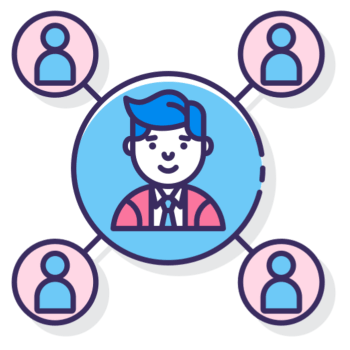
This is probably the easiest monetization method of the lot because all you’ll be doing is selling other people’s products and collecting commissions from the sales you generate.
There are several platforms that allow affiliates to promote products. The most common ones are Amazon, ClickBank, ShareASale, Rakuten and so on.
Once you’re registered with these platforms, it’s just a matter of adding your affiliate links (on your blog) to RELEVANT products in your niche.
There must be congruence with your niche and the products you’re recommending. You wouldn’t want to promote a herpes cream on a toy blog just because the cream has a high pay-out.
Ideally, you should promote a mix of both tangible and digital products. It’ll also be wise to promote products on different platforms. This will ensure that all your eggs are not in one basket.
Far too many bloggers rely entirely on Amazon Associates (with its paltry commission rates). Then they see their earnings dry up overnight if Amazon bans them from the platform.
Unfortunately, this happens all the time and the affiliates are not even given a reason as to why they were banned. The sheer indignity of it all.
Your takeaway?
Diversify, diversify, diversify.
Sell Your Own Digital Products
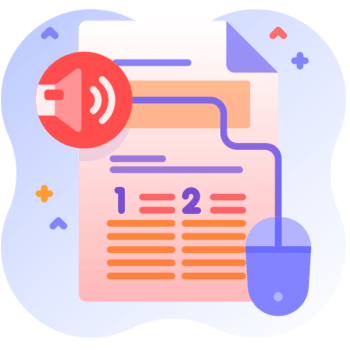
This is a highly lucrative way to generate an income from your blog. It’s more technical because you’ll need to set up a sales page, funnel, etc. You’ll also need to create a product and have good sales copy so that your sales conversions are high.
All this may seem like a lot of work… and it is… but the rewards are great.
You could do a lot of it yourself by using page/funnel builders such as Thrive Themes (now part of Thrive Suite), ClickFunnels, Optimizepress, Convertri etc. These types of software will help you immensely because they’re relatively simple and intuitive to use.
The truth is that you don’t need to do it all. The good news is that you can outsource the different parts of the process to freelancers on sites like Fiverr and/or Freelancer… while you only focus on what you’re good at…
… and when it’s all completed, you just put the moving parts together and VOILA! Your very own Frankenproduct that you can sell on your blog.
When you’re creating and selling your own products, you’ll have a lot more flexibility and be in control of:
- Product pricing
- If it’s a one-time fee or a recurring monthly/yearly membership
- The depth of the sales funnel (upgrades, downsells, etc.)
- What the product will be about
- Customer service
It’s more work, but it’s also more freedom from a business standpoint… and exponentially more profit, if you’re good at it.
Selling Physical Products

This is similar to the earlier point, but now you’re selling physical products. You’ll need a store with a shopping cart that calculates shipping and so on. This is slightly more complicated because you’ll need to fulfil the orders.
There are several options here and you’ll need to do your research and see which method is best for your business. You don’t want to end up in a situation where you’re making lots of sales but the post office has become your second home.
Email Marketing

It looks like no online marketing article can ever be complete without paying homage to email marketing – and that’s because it really does work. Unlike social media marketing which can be blocked by your audience, most people check their emails – and you want to show up there… to sell!
Yes! Don’t forget the selling… but always remember to deliver value in your emails. You’ll have to find the right balance here.
The easiest way to do this will be to use software like Thrive Leads (now part of Thrive Suite) or Conversion Gorilla to display opt in forms, pop ups, scroll mats and so on. This is a fantastic software that most marketers will benefit from.
Another excellent plugin is Post Gopher. It allows your site visitors to download your blog posts as PDFs which they can read later – in exchange for their emails.
Now it’s just a matter of connecting your opt in form to a reliable autoresponder platform like Active Campaign and you’re good to go.
Active Campaign is one of the best autoresponders in the business and is one of the most powerful autoresponders out there for the price, and has powerful tagging and automation tools. As an alternative you could also check out Aweber.
All tech talk aside, just ensure that you have a way to collect emails on your blog and you have an autoresponder sequence in place to nurture the audience on your list.
Why?
Because you need to sell, sell, sell! That’s why!
Sell Your Own Skills As A Service

This point was saved for last because it has one downside.
As long as you’re providing a service which requires your direct involvement, you’ll be trading your time for money… which in itself places an invisible ceiling on your earnings, unless you have special royalty/commission arrangements in place with those who hire you.
Common examples of services are content writing, copywriting, graphic design, video creation and so on. These are time-consuming tasks. You could make top dollar, but ultimately, it’s still a job and not passive. But it’s your call.
Alternatively, you could be a middleman and use service arbitrage to sell services that others deliver. You’ll charge a higher rate and hire a cheaper freelancer to do the job for you.
You’ll then deliver that job to the person who hired you and you’ll pocket the difference. Of course, you’ll need to ensure that the freelancer did a good job before delivering the work, so that your reputation is intact.
Arbitrage is perfectly legal and people do it all the time.
In conclusion, the 5 methods above are really ALL you need to make six or even seven figures with your blog/s. You can apply 2 or 3 of the methods above and skyrocket your income in a couple of months.
Start working on them today… and remember to… SELL SELL SELL!

3 Things To Avoid When Emailing Your List

When you decide to start building your email list, it isn’t just a matter of sending your subscribers your promotional newsletters or bombarding them with affiliate links. There are many things to consider to help avoid upsetting your subscribers and to keep them opening your emails.
Apart from that, you also want to avoid any problems with the law and your internet service provider or ISP. There are now many laws and rules that are applied to help protect the privacy of the internet users from spamming and unwanted mails.
And this is especially important with the introduction of GDPR if you are collecting subscribers from the EU.
Email has always been a popular medium for marketing because of the low cost, and because of this, many companies have seized the opportunity and have flooded their subscribers email inboxes with promotional mail that offers very little in value to the reader.
This is a very big problem in the Internet Marketing and Make Money Online niches in particular.
They have consented to being on your list by signing up and giving you their valuable email address; just don’t forget to put an unsubscribe option in every email to make it easy for them to leave if they want to do so.
There may be times when an email account was provided when the real owner didn’t want to subscribe, such as if the email account was hacked; it may be rare, but it does happen.
One thing to remember is that it is essential that you keep your list clean and manageable. You can do this by using the many tools and technologies available within your autoresponder. For a great autoresponder, check out Active Campaign or Aweber.
Do not worry; your investment in any email marketing strategy is well worth it with all the coverage you will get which will likely be converted into sales and profit. Plus, if you treat your subscribers well, they can become customers for life.
Keep yourself and your business out of trouble and potential run-ins with the law and the internet service providers. Keep your operation legit and clean.
Your reputation as a legitimate businessman and a legitimate site depends on your being a straight and true marketing strategist. To help guide you through all of this, here are three things to avoid when emailing your list.
1: Take Notice Of Your Bounce Rate

These are e-mails that are basically undeliverable and for whatever reason, were not successfully received by the intended recipient.
There are bounces that happen or occur because the server was busy at the time they were sent but these can still be delivered later, and you should be able to resend any email via your autoresponder service.
There may also be bounces because the inbox of the recipient is full at the time.
Manage your list by making a note on those email addresses that bounce. Remove these email addresses from your list regularly so that you have accurate statistics and records as to how many are actually receiving your mail.
You may also want to check the spellings of your email addresses in your list. One common mistake is when an N instead of an M is placed in the .com area.
Your bounce rate may affect your deliverability too, so it is doubly important to remove email addresses that are bouncing to ensure that your other emails aren’t being affected.
2: Make It Easy To Unsubscribe

Always provide an unsubscribe link in all of your mails. This is a legal requirement, especially nowadays with increased data protection laws. When someone in your list files a request to be unsubscribed, always take that request seriously.
If you don’t take them off your list and keep sending them your e-mails, you are now sending them spam mail.
You could also lose a lot of subscribers this way and if you earn a reputation as a spammer, this will definitely affect future potential subscribers as your name will get around the internet via social media etc. so always act with integrity and have your readers best interest at heart.
3: Keep It Clean
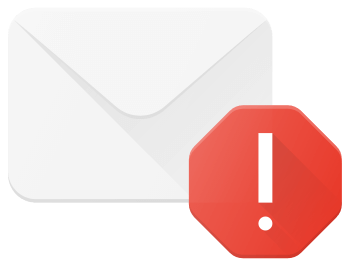
Do not provide pornographic or shocking and disturbing content in your newsletters. You probably have no idea of the real age of the recipient and you could get many complaints from this.
Of course, if you are in this type of niche, you would need to have safeguarding measures in place to ensure that anyone who does subscribe to this type of material is of a suitable age.
This is why personally I would avoid these types of niches because they are very difficult to police from your end and if you are found to be sending age-inappropriate content, you could end up in a lot of trouble.
If you keep these tips in mind, you should be able to maintain a healthy relationship with your subscribers. Always remember that you are there to serve your readers; they have come to you for your advice and guidance so don’t exploit them. It’s fine to promote offers to them, but it shouldn’t be the entire focus of your email marketing strategy.
Just think; “Would I be happy to receive this email in my inbox?”
If the answer is yes, then you are on the right track…
If you want to know more about nurturing your list after they have opted in, check out the featured resource below where you can get a free report about simple list building to expand your knowledge further. If you do download it, please read it and take action and good luck 😊

How To Get Visitors To Your Opt-In Page

Despite the recent growth of various online marketing strategies such as social media, email marketing still remains to be the most effective marketing tool for websites. A mailing list is therefore one of the greatest assets a business can possess.
Building this list however is not an easy task. Some websites have even resorted to buying lists in a desperate attempt to increase their subscribers but in the end this proves useless and even damaging.
The first step in creating a successful opt in page is increasing the traffic to it. Without people visiting the page, you have no chance of building your list. Below are some helpful strategies through which you can boost the number of visitors visiting your opt in page.
Search Engine Optimization (SEO)

To get as many people as possible to visit the opt in page, you need to put your website in front of as many eyes as possible. The best way of doing this is through search engine optimization.
With an increased ranking, more web users will see your website and possibly visit it.
Paid Advertising
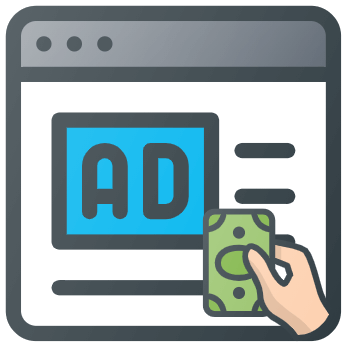
If you are just beginning to build your mailing list, getting the traffic you need naturally can take time. To jumpstart the list, make use of paid advertising. You can advertise using Google, Bing or Facebook ads among others.
Ensure that you have crafted your ads, especially those on Facebook, well enough so as to attract as many people as possible.
Social Media

Facebook, Twitter and Google Plus are some of the best social media websites that you can use to triple the traffic being received on the opt in or squeeze page. Facebook is especially effective at this.
All you need to do is create a fan page and then get people to join it.
Be careful however not to spam your fans. Instead, strive to provide value and make offers that they cannot refuse.
Solo Ads
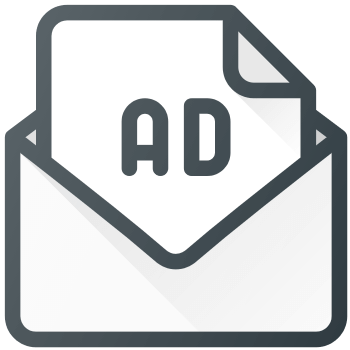
This is another popular method of jumpstarting your list although you will have to pay for it. It involves using someone else’s list to market your website and create your own subscribers.
Of course, you can only use solo ads with other related websites. For those in marketing and business niches, a form of solo ads is Safe Swaps – http://safe-swaps.com
A word of warning though; not all solo ad vendors are made equal and there are a lot of poor providers out there so this is NOT for the novice marketer as you can lose a lot of money quickly. In all honesty, paid advertising via the likes of Google, Bing and Facebook are more reliable.
Forums

Many websites owners do not realize the potential that forums hold in getting more people to visit an opt in page and subscribe to emails. You can easily build a list with hundreds of subscribers simply by using forums.
As you build your authority on a forum, more people will be curious to find out what you are offering.
Article Marketing

Article marketing has long been said that it no longer works. However, it should still be part of your traffic generation strategy, as you’ll still get traffic from those searching for information around a particular topic.
To increase the number of people who follow the url ensure that the article contains helpful and informative content and use more than one article directory.
Even better, post the articles to directories in a certain niche rather than general directories. Here’s an article directory where you can submit your articles: http://ezinearticles.com
Press Releases

Media releases are particularly effective at getting people to check out what you are offering.
To increase the effectiveness of press releases, create them regularly and submit them to different news websites.
Guest Blogging

Get in touch with popular bloggers and ask whether you can submit a blog post.
This tactic is all about exposure and you are borrowing the site owners expertise. The more popular the blog, the more traffic you will get.
Contests

People love winning things, and a contest of any kind will receive a lot of attention.
Ensure that the reward for the winner is appealing enough for people to want to participate.
YouTube

YouTube is the most popular video hosting website. Take advantage of the millions of visitors who visit it every day to boost traffic to your opt in page.
Learn how to create a viral video that is both helpful and interesting. In the video and description, provide a link to the opt in page. You can also encourage people to share their video on their websites for more visibility.
After you have attained considerable traffic increases, remember that there is also the work of getting people to actually join your mailing list. But once you have established a steady stream of reliable traffic, you have tackled this major first step in email marketing.
If you want to know more about building your list after they have opted in, check out the featured resource below where you can get a free report about simple list building to expand your knowledge further.

Lead Generation Strategies System Part 4
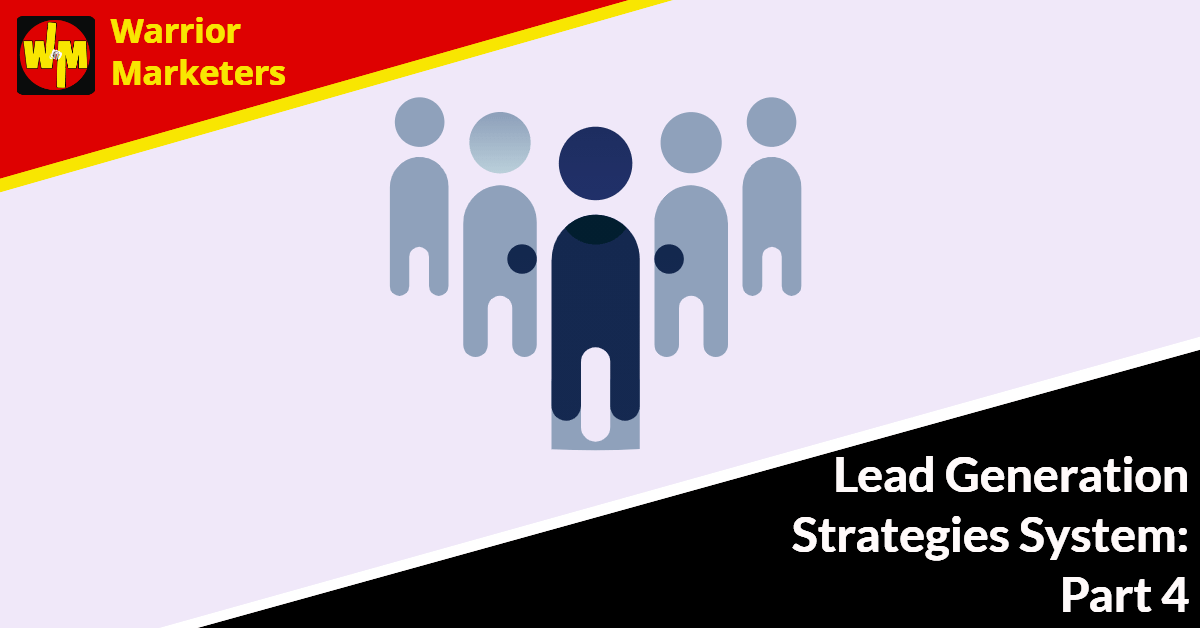
OK, in the previous posts (Part 1, Part 2 and Part 3) we talked about the first 3 steps in the process of attracting leads to your business, namely the automation system, so you should’ve picked your autoresponder or CRM of choice and been experimenting with it, creating your lead magnet to entice readers to opt-in and give you their email address and setting up your squeeze page to show readers the free offer.
Step Four: Traffic

The three previous steps were pretty easy. Even if you create your own lead magnet from scratch, and you need time to learn how to use your autoresponder or CRM, you can complete the other three steps in a few days at most.
You might think traffic is the hardest part, but it’s actually a lot simpler than you think to get traffic! We’re going to take a look at a few of the best strategies for getting traffic, both free and paid.
Free Traffic

As far as free traffic goes, there’s only one method that’s quick enough to generate traffic starting today, doesn’t have a hefty learning curve, and provides quality traffic that can convert: social media.
While you can still use other social networks, most of your effort should be focused on those sites that have a higher concentration of your target demographic.
We’re going to look at a few of the most popular social networks, and how you can locate your target demographic on each one in order to find out which one(s) you should concentrate on.
Locating your target demographic on Facebook is relatively simple. Begin by searching for a topic related to your niche and find pages and groups that fit your niche.
For example, if you are offering a dog walking service, you’d want to search for things like groups for pet owners in your city or state.
Find out how many people are in those groups, and how many groups there are. This will give you a rough idea of how many people you can reach on Facebook.
Otherwise, you should be able to pipe in if people happen to ask about dog walking services.
You can also start your own group, which is your best option. This will give you a source of traffic you can turn into leads anytime.
You should also start a Facebook page for your business, and you can even include a link to your squeeze page on your Facebook page.
Pinterest is like an online corkboard. You can have multiple “boards”, and then pin images with links, sort of like bookmarking a page.
You can find out how popular your niche is on Pinterest by performing a search, and then clicking “Boards” to find out how many people have boards related to your niche AND how many followers those boards have.
You can also search pins for the niche and see how many repins each one has. This will let you know how interested people are.
You’ll need to have some interesting content to pin, so it’s a good idea to have a blog or website that you use to post content related to your field.
For example, you could have a dog care blog for your dog walking service and post useful information for pet owners.
One important thing to note is that Pinterest is heavily imaged-based, so you’ll need good images to pin that relate to your article.
For example, if you’ve posted an article called “5 Tips for Housebreaking Your Puppy”, you’d want to include a photo of a dog being trained, or something related to housebreaking a puppy, and have the title of your article on the image.
If you take a look at Pinterest, you’ll see that most images are taller than they are wide. That’s because they take up the most screen real estate since images are constrained by width but have much more space to expand lengthwise. Thus, try to make sure your images follow the same format.
Instagram is a great platform for visual content, and you can get a lot of traffic from it, especially if your business is related to fashion, beauty, art, lifestyle, food and cooking, crafts, or other topics that are popular.
This will show you how many posts are currently on the site using that phrase, as well as lots of related phrases.
For example, when I search for “dogs”, I see millions of posts with such hashtags as #dogsofinstagram, #dogs, #dogstagram, and #dogsitting.
You can also click the “People” tab and click some of the top profiles to see how many followers they have. This is another good indicator of interest in your topic.
There are three important steps to getting traffic from Instagram:
- Fill out your profile and include a link to your website or squeeze page there. Make sure to choose an interesting photo of either yourself or something related to your niche for your profile picture. And include that link because you can’t include links in the descriptions of your individual posts! (Just tell people to check your profile for a link.)
- Post often. Instagram posts scroll by and are gone quickly if someone is following a lot of profiles, so the best way to get seen is to post as often as possible. Don’t spam! Just a few posts a day is fine, but spread them out every few hours. And don’t forget to add at least 5 relevant hashtags to every post!
- Follow people who are related to your niche. Many will follow you back, and others will find and follow you from those people’s profiles. It’s a good idea to follow at least 20 new accounts each day, which you can find easily through the search function and referrals from other people. Stick mostly to following accounts related to your niche, because you want qualified leads, not just a high follower count!
Other Social Networks
There are other social networks that can be effective, too, depending on your market. I suggest giving each of these a try to see how they do for your particular market, but you might want to concentrate your efforts on the other sites we’ve talked about earlier in this chapter.
Paid Traffic

I don’t recommend using paid ads until you’ve thrown a good amount of free traffic at your squeeze page for a while and tested conversion rates.
Once you’re happy with how your page is converting, you can start sending some paid traffic to it.
Let’s look at some of the most effective paid ad platforms. These are generally the most profitable, but they may not work for all niches equally, so be sure to track your conversions carefully, tweak ads as needed, and kill any ads that aren’t performing.
Facebook Ads
Facebook is generally considered one of the best advertising platforms, because ads are typically affordable and convert well. This is mainly because of how well they are able to target ads to the appropriate parties.
Remember when we talked about how important it is to get qualified leads? Facebook is brilliant for that, because they have incredibly advanced targeting options.
Sticking with our example of using a local dog walking business, you can target people in your city, or surrounding cities, AND who are dog owners. You can seriously get THAT specific!
When you create your ad, pay attention to the type of ad you’re creating. The regular newsfeed and mobile newsfeed formats are considered the most profitable.
Keep in mind that the price you pay for your ads on Facebook is heavily based on your CTR (click-thru rate), so it’s important to design the most effective ad possible.
Facebook has a great guide to help you get started:
>> https://www.facebook.com/business/ads-guide
Bing Ads
Bing’s ad platform isn’t nearly as competitive as many others, because they have much less traffic than Google, Facebook, and some other platforms.
However, you can still get a lot of traffic at a very low price, because the lower competition means you can actually get more traffic than you could at the more competitive sites because in many instances you could be the only advertiser in a genre.
Bing has a lot of training if you’re not familiar with the platform:
>>https://advertise.bingads.microsoft.com/en-us/resources/training/courses
Other Ad Platforms
There are platforms you can explore as well, such as YouTube, Pinterest, Twitter, Instagram, Google AdWords, and many others.
But these can be a little trickier to master than the other three platforms we discussed, as they are either more expensive, more competitive, or harder to master.
Well, I hope you’ve enjoyed this 4-part series on lead generation strategies for your business. Now go and put it into action. If you want the whole series in a handy pdf that you can download and refer to at your convenience, you can do that here.
And don’t forget, if you want to know more about building your list of leads, check out the featured resource below where you can get a free report about simple list building to expand your knowledge further. If you do download it, please read it and take action and good luck 😊

Lead Generation Strategies System Part 3

OK, in the previous posts (Part 1 and Part 2) we talked about the first 2 steps in the process of attracting leads to your business, namely the automation system, so you should’ve picked your autoresponder or CRM of choice and been experimenting with it and your lead magnet to entice readers to opt-in and give you their email address.
Step Three: The Squeeze Page

Your squeeze page is your lead generation page. This is a web page created specifically to collect information from people and once they do, your autoresponder will send them an email which will direct them to the page where they can download their freebie.
As you learnt in the previous post, DON’T send them directly to the download page after they sign up because many people will give you a fake email address just to get your gift.
Your squeeze page should be relatively short. It’s not like a long sales letter. People don’t need that much convincing when something is free, but they do need some.
After all, they don’t want to give up their personal contact details unless they really think your lead magnet will benefit them.
For this reason, squeeze pages should have just enough information to entice the reader into taking action. If it’s too long, people will get bored and leave before they opt in!
Generally speaking, a squeeze page should consist of 5 main components:
- Headline – This needs to immediately capture their attention and persuade them to continue reading.
- Sub-headline – This provides a little more information and works as your headline’s supporting agent.
- Bullet points – Quick, digestible highlights about how your prospect benefits by subscribing to your newsletter or entering your funnel.
- A call-to-action – A direct prompt that instructs your prospect how to complete the process of signing up for your free offer.
- Your lead generation form – usually generated by your autoresponder service or lead generation service with various form fields and a button to submit the information.
To create your squeeze page, you are going to need some form of page builder.
If you are using WordPress there are many plugins that you can use for this purpose and a few of my favorites are OptimizePress and Thrive Architect.
If you don’t want to be restricted to WordPress, you can use something like Convertri or ClickFunnels and they will also host the pages for you.
Quick Tip: REDUCE YOUR WORKLOAD
Remember that you can use done-for-you content (PLR) to create lead magnets quickly. Here are some high-quality PLR vendors in the Internet Marketing and Coaching and Consulting niches:
If you are in the self-help niche and want some high-quality PLR, then check out Tools For Motivation
Please remember to be careful when using PLR as there is a lot of rubbish out there. If you stick with the vendors above you won’t go wrong. They aren’t the cheapest but they are the best and many of them have some great offers and sales from time to time so sign up for their emails to get notified of any specials they may be doing and grab a bargain 😊
Information To Collect
Most people collect only the name and email address of their leads, but you might need more information than that, depending on your niche market, and whether you wish to further segment your lists and identify potential customers through demographic based data.
The name and email address of potential customers is probably enough information for general marketing purposes, but what if you’re selling a higher-end product or service like real estate or legal services, or something that requires one-on-one contact like coaching, you’ll want to begin collecting as much information as possible to help you better connect with potential customers.
In cases like this, it’s probably a better idea to ask for name, address, telephone number, and email. You might even need additional information, such as date of birth (if you’re selling something for adults only, for example) or even more detailed information, such as the breed of dog they own, or their income.
In other words, what information do you really need to know upfront, and what can you gather later in the selling process?
Once your squeeze page is set up, and you’ve added the lead magnet to your autoresponder service, it’s time to start sending traffic to your squeeze page and we’ll look at that in the final part of this series…
Don’t forget that if you want all 4 posts in this series in a handy pdf that you can download and refer to at your convenience, you can do that here.
And remember, if you want to know more about building your list of leads, check out the featured resource below where you can get a free report about simple list building to expand your knowledge further. If you do download it, please read it and take action and good luck 😊







